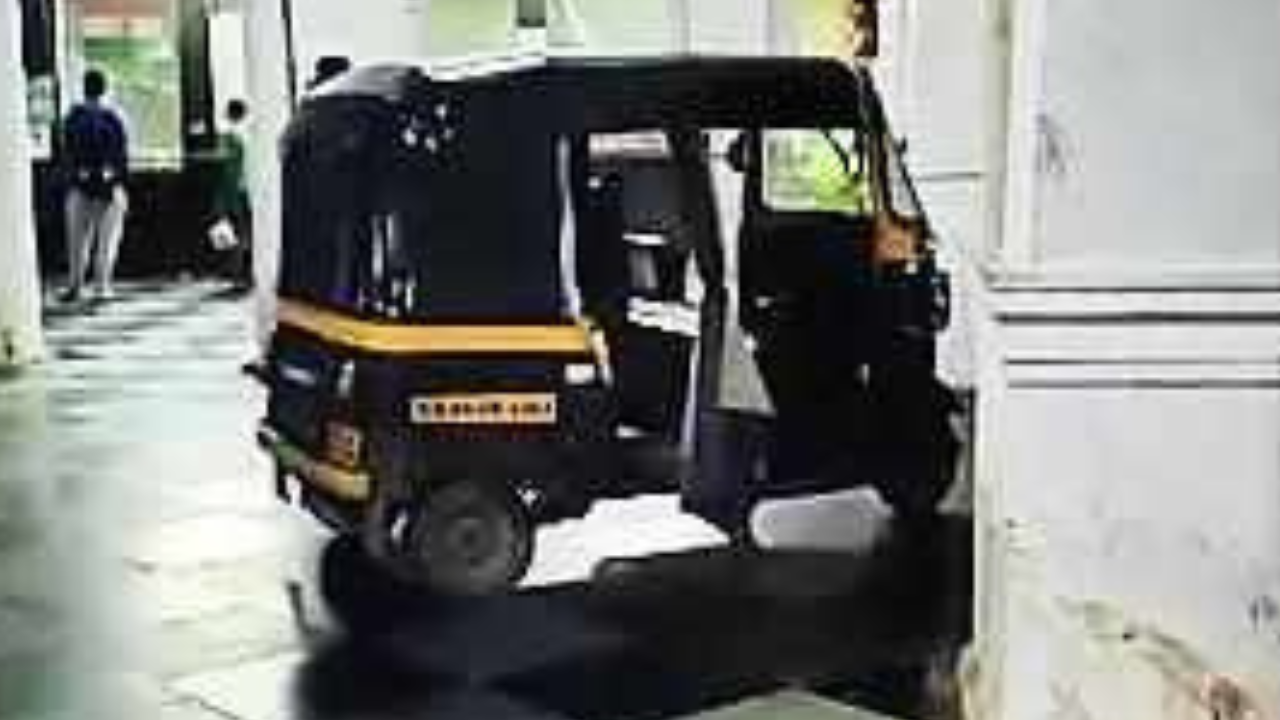MUMBAI: The autorickshaw union has given an ultimatum to the state government to implement a Rs 2 fare hike in Mumbai by December 31. It wants the minimum fare for autorickshaws in suburbs to go up from Rs 23 to Rs 25.
Mumbai Rickshawmen’s Union leader Thampy Kurien told TOI he has requested the state principal secretary to consider the proposal for a fare hike by December 31 after which the union will move the Bombay high court.
“It was not a fair deal when we got the fare hike in October last year. The hike of Rs 2-from Rs 21 to Rs 23-was not enough to cover our increasing expenses,” he said.
He further said the union has calculated the fare hike based on the Khatua committee formula for fares. “Our calculations, which have been submitted to the transport secretary, mentions that the fares should increase by around Rs 2-to minimum Rs 25 fare,” he said.
Senior transport officials were unavailable for comment. Transport sources said any hike proposal is first brought before the Mumbai Metropolitan Region Transport Authority (MMRTA) which is presided over by the transport secretary. The authority takes a final call on increasing fares of both autos and taxis in Mumbai.
The union, in the petition, stated the hike demand was based on the increasing consumer price index which is one of the major factors to decide on increasing auto fares, according to the government formula. There were a few other factors, including capital cost of vehicles, maintenance and repair costs, insurance and taxes, which had escalated lately, and these too are instrumental to some extent in the new fare hike calculations. The union has submitted the calculations as per the formula to transport officials, and is expecting a reply soon, Kurien said.
MMRTA had in October 2022 given a hike of Rs 2 for autos and Rs 3 for taxis-taking the minimum fares from Rs 21 to Rs 23 for autos and Rs 25 to Rs 28 for the kaali-peeli taxis.
Consumer rights activists and commuters are strictly against any fare hike. They said the cost of CNG had dropped on three occasions this year, and there was no need for another fare hike.
On October 2, the price dropped by Rs 3 per kg, and prior to that in April, it dipped by Rs 8 per kg and earlier in February the price had reduced by Rs 2.5 per kg.
A consumer activist said instead of hiking fares, the government should make it a telescopic fare. As per the telescopic fare suggested by the government-appointed Khatua committee in the past, the fare for the first 8km remains as per the tariff card while from 8.1km to 12km, the fare is reduced by 15% and thereafter there is a dip of 20% in the fare for commuters.
Mumbai Rickshawmen’s Union leader Thampy Kurien told TOI he has requested the state principal secretary to consider the proposal for a fare hike by December 31 after which the union will move the Bombay high court.
“It was not a fair deal when we got the fare hike in October last year. The hike of Rs 2-from Rs 21 to Rs 23-was not enough to cover our increasing expenses,” he said.
He further said the union has calculated the fare hike based on the Khatua committee formula for fares. “Our calculations, which have been submitted to the transport secretary, mentions that the fares should increase by around Rs 2-to minimum Rs 25 fare,” he said.
Senior transport officials were unavailable for comment. Transport sources said any hike proposal is first brought before the Mumbai Metropolitan Region Transport Authority (MMRTA) which is presided over by the transport secretary. The authority takes a final call on increasing fares of both autos and taxis in Mumbai.
The union, in the petition, stated the hike demand was based on the increasing consumer price index which is one of the major factors to decide on increasing auto fares, according to the government formula. There were a few other factors, including capital cost of vehicles, maintenance and repair costs, insurance and taxes, which had escalated lately, and these too are instrumental to some extent in the new fare hike calculations. The union has submitted the calculations as per the formula to transport officials, and is expecting a reply soon, Kurien said.
MMRTA had in October 2022 given a hike of Rs 2 for autos and Rs 3 for taxis-taking the minimum fares from Rs 21 to Rs 23 for autos and Rs 25 to Rs 28 for the kaali-peeli taxis.
Consumer rights activists and commuters are strictly against any fare hike. They said the cost of CNG had dropped on three occasions this year, and there was no need for another fare hike.
On October 2, the price dropped by Rs 3 per kg, and prior to that in April, it dipped by Rs 8 per kg and earlier in February the price had reduced by Rs 2.5 per kg.
A consumer activist said instead of hiking fares, the government should make it a telescopic fare. As per the telescopic fare suggested by the government-appointed Khatua committee in the past, the fare for the first 8km remains as per the tariff card while from 8.1km to 12km, the fare is reduced by 15% and thereafter there is a dip of 20% in the fare for commuters.







